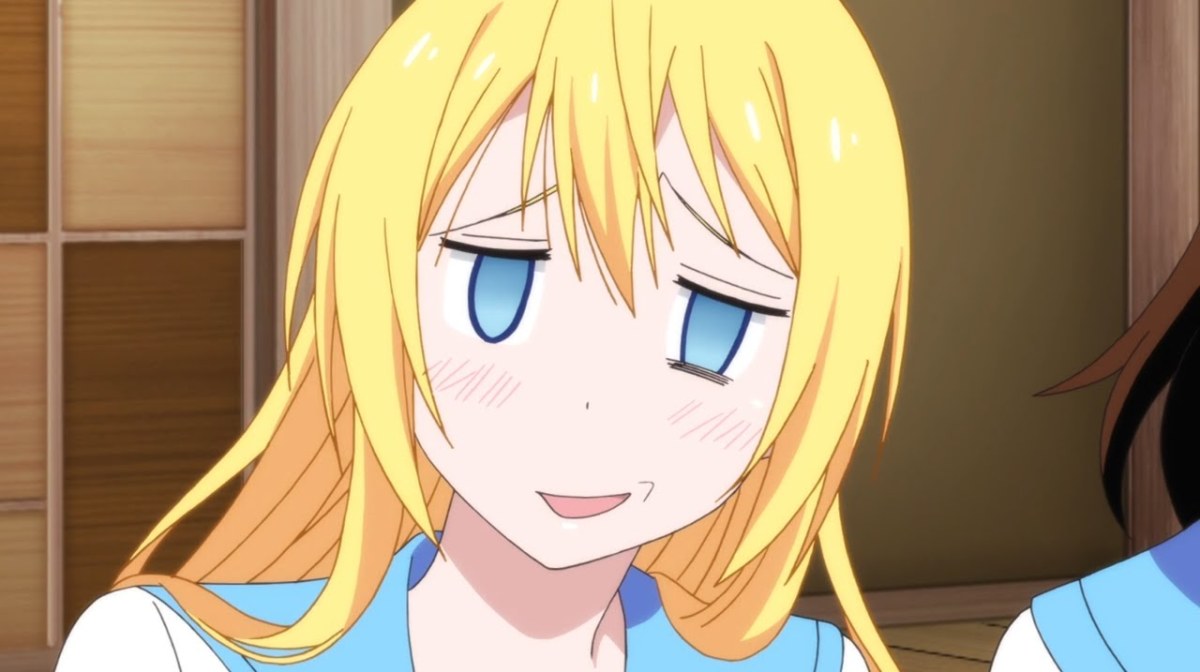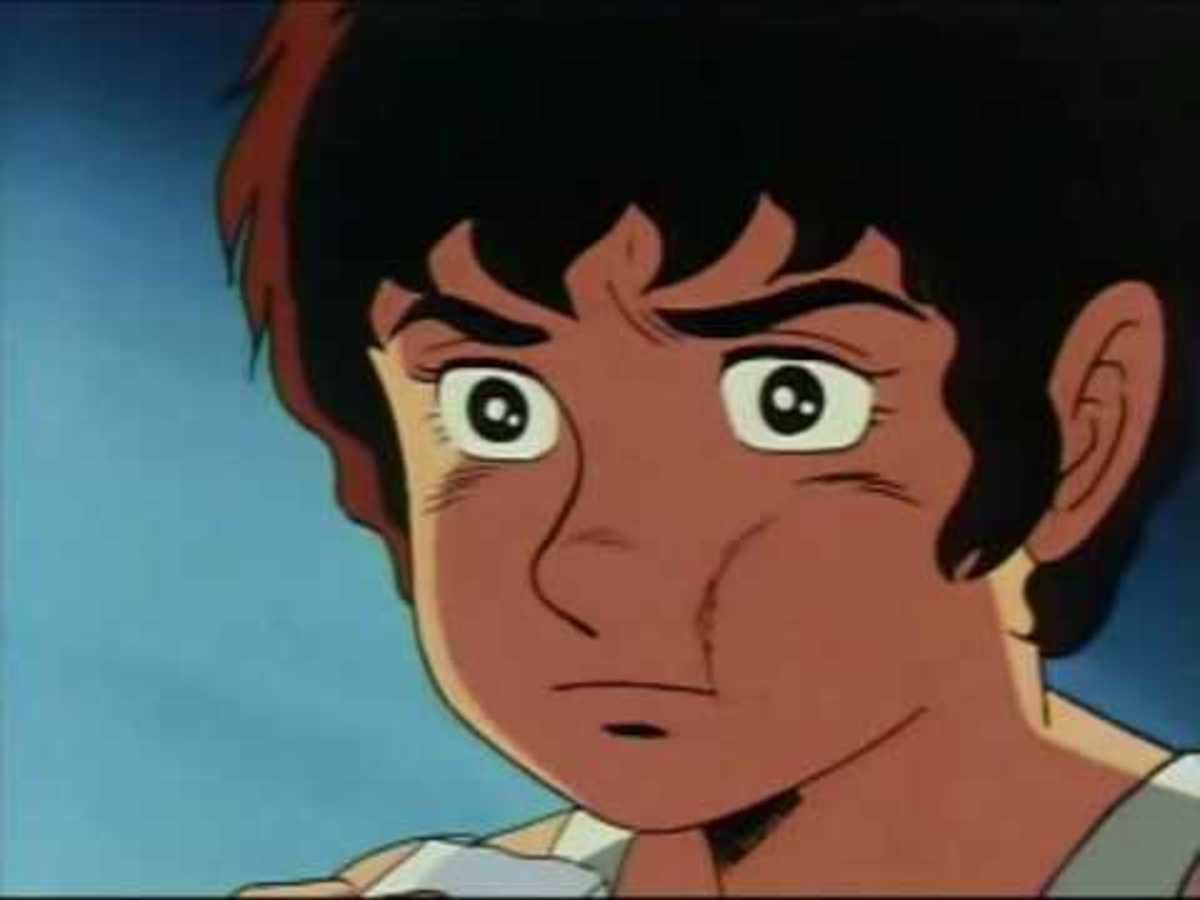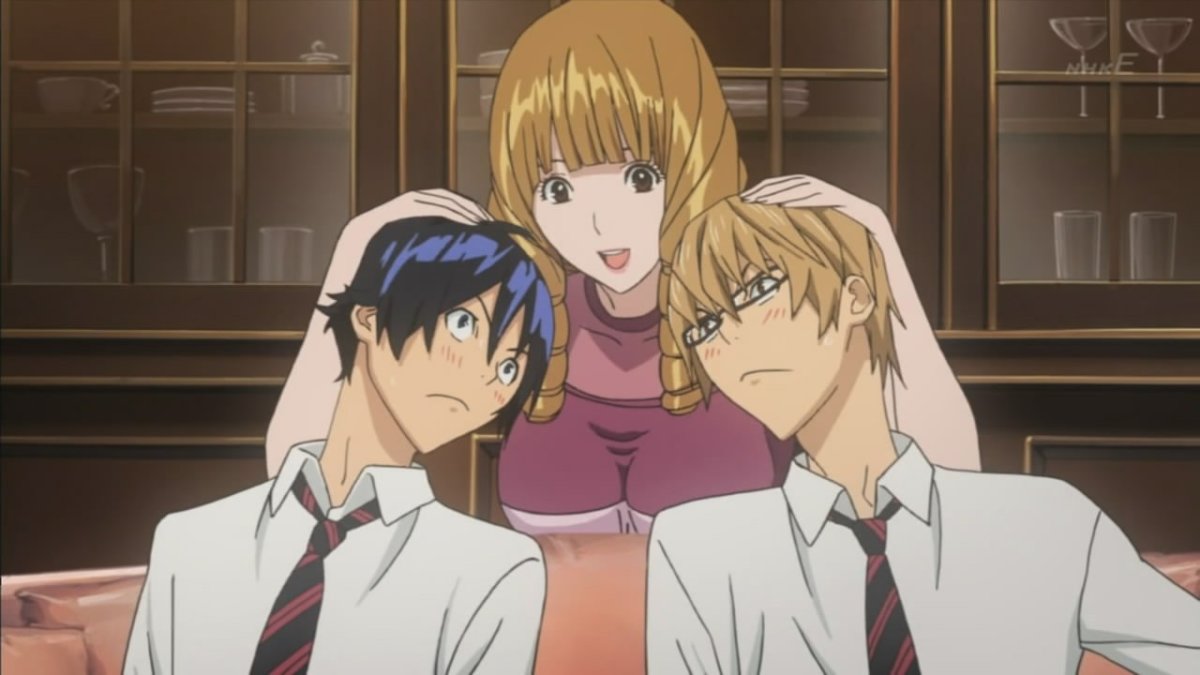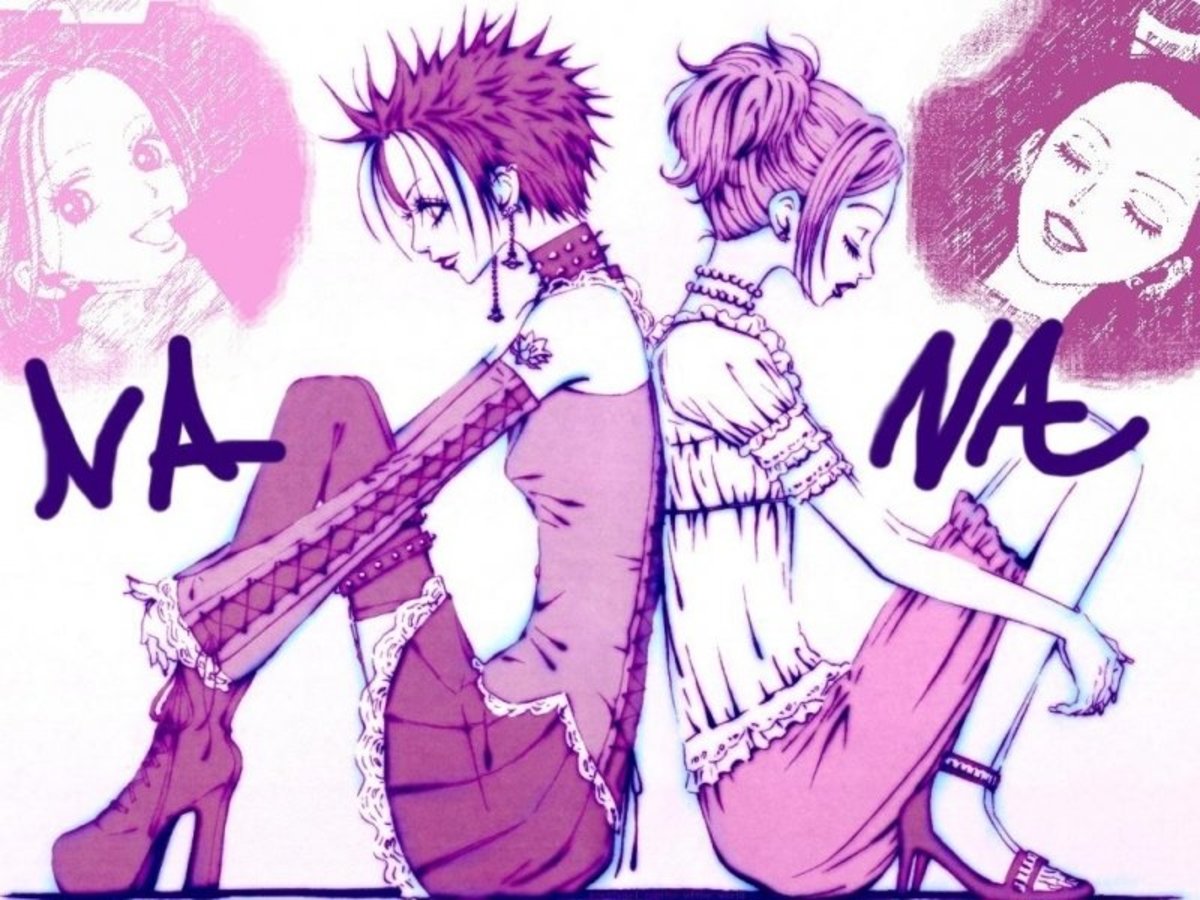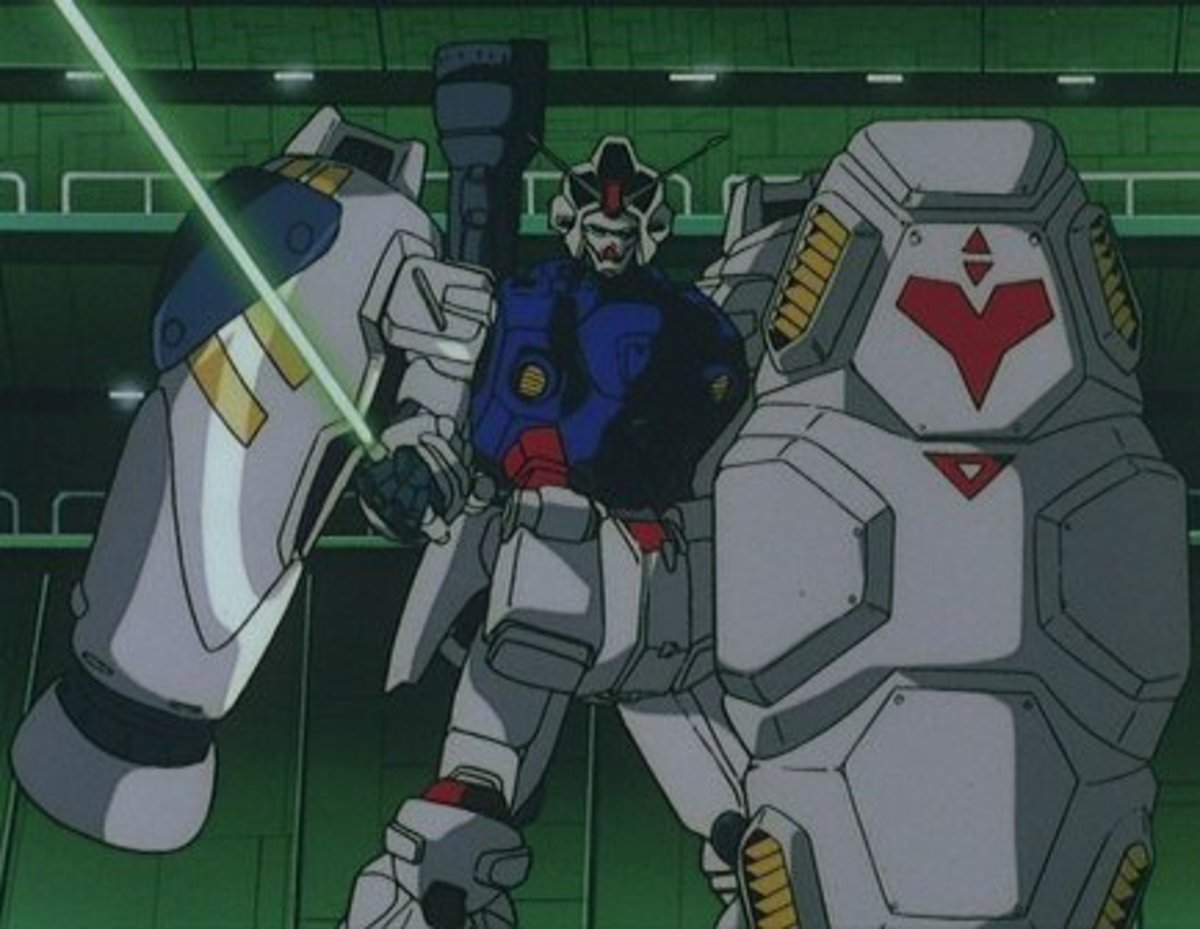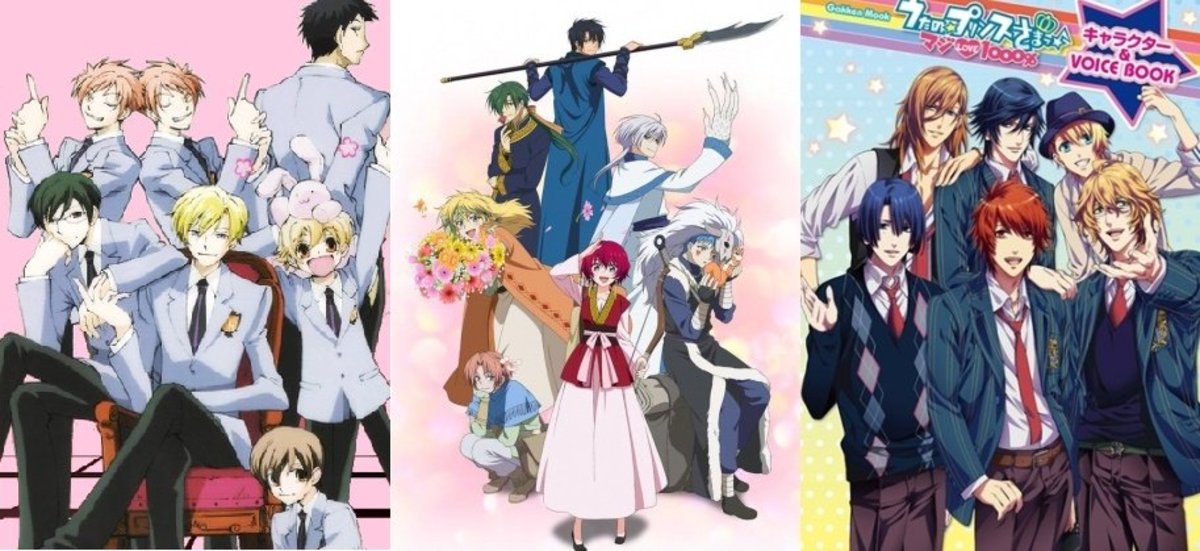White Album Anime Review
Along with the triumphant installments and unimaginative fodder that has graced entertainment media since its humble beginnings, there have been a decent amount of titles whose execution fail to exhibit the ambition that preceded its production. Though there is quite a few titles of this nature found through every alley and passage of the entertainment industry, only one specific one comes to mind in association with anime. Of course, what I'm talking about is School Days, which apparently was an attempt at a deconstruction of generic school romance. Its lack of memorable personality within its characters, chemistry between its characters, and tendency to just downright make no sense led to its downfall.
Even if it is sometimes painful to watch a movie or show become a "trainwreck" or outright fail in its presentation, it's still important to examine why they are failures, so as to further one's understanding of the theories involved in writing, and to better comprehend human inclinations. The anime White Album is a major example of something that has a great premise, but stumbles far too many times than is acceptable in its realm of presentation. Therefore, I think that it'd be beneficial to give an explanation that details why it is so tantalizing.

White Album is a 26-episode anime series aired in 2009 that is based on the visual novel of the same name, which was released in 1998. The anime was developed by Seven Arcs, a studio whose only notable works are the Dog Days and Mahou Shoujo Lyrical Nanoha anime. The gist of White Album is a story in which protagonist Touya Fujii, a college student, finds it increasingly difficult to retain his relationship with his girlfriend, Yuki, once she becomes a pop singer. This is further complicated by the fact that the show is set in the 80's, and that Touya seems to lavishly have women other than Yuki in his presence.
Characters
Touya Fujii is the main protagonist of the series. Early on in the show, he displays a very careful attitude, is heavily concerned for Yuki's well-being, and also desires to spend more time with her; a craving which often cannot be satisfied given her status as an idol. He goes to great lengths to obtain his wishes, and this quality doesn't go unnoticed by the other characters, who seem to have a low opinion of him. This purposeful drive of his is still limited by his complacency, which prevents him from exuding too much pressure within a situation over a specific threshold. Even though his headstrong persona causes him to approach many incidents quite intelligently, he appears burnt out with other pursuits and exudes the essence of unawareness when dealing with them. In the second half of the show, his tendencies shift dramatically, as he begins to care less about his reputation. Some of his interactions start becoming nonsensical towards the end of the show.
Yuki Morikawa became Touya's girlfriend prior to the beginning of the series. Being that she's easily manipulated and portrays a frail demeanor, she doesn't seem to have much influence on the factors that affect her. The audience doesn't even know precisely why she wanted to become a pop singer in the first place, making it feel like her choice to become involved in the music business was initiated by someone other than her. This can also be seen as the cause for her interest in Touya, as he almost never ceases in committing actions of his own accord.
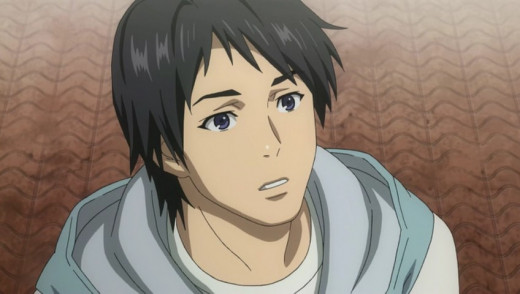
Rina Ogata is primarily responsible for attending to Yuki's composure throughout the series. Her career as a pop singer started before Yuki's, and she's given a lot more wisdom because of this. Although she is confident and informed, she sometimes will slip into a state of questionable ethics that contrasts her confident persona. Rina knows exactly what it takes to succeed in life, and this trait is mostly derived via her brother's involvement in her life. She cares not for the method by which an action is performed as long as the desired result is met.
Eiji Ogata is in charge of the music production company that Yuki and Rina both take part in. His ideas are always very intricate and well thought-out, and he's given significant praise for doing so. Some factors contribute to the idea that he's constantly on a thin ice pirouette, with his poise being the ice that could crack at any minute.
Akira Nanase is Touya's only male "friend." He's not that close to Touya, and often talks of how much he disapproves of his actions behind his back, as if he does not actually enjoy being around Touya. His arrogance is somewhat justified by his high level of knowledge and intuition, though he is daftly afraid of confrontation.
Haruka Kawashima is one of Touya's childhood friends. Her past with him leads her to be overly-attached to him, to the point at which she proposes interaction with him even though she knows he will deny her suggestion, simply because she enjoys talking to him. Along with this, she seems very good at attending to others' social needs, probably because she has a deep craving for intimacy herself.
Misaki Sawakura doesn't know where exactly her intentions lie, despite having the tools and composure that usually go along with decisiveness. She remains perfectly honest throughout the entire series, and often distances herself if put in a position that would force her to verbally bridge her inner-self to her outer-self.
Mana Mizuki uses a foreboding facade so as to prevent others from seeing her as weak. She could probably do anything if she tried, but lacks the will to do so.
Yayoi Shinozuka is defined by her unwillingness to change her mind on anything. She's persistent in that she will continue trying to solve the same situation in the same way that failed many times before, making her insane in a way.
Story
The basis of White Album entails how humans are almost always reliant on someone else to make their self-satisfaction come full circle. It pursues this idea with a great amount of vigor, utilizing a wealth of three-dimensional characters within an intricate (but also straightforward) plot to back up its themes. When I was watching it, I couldn't help but endlessly compare it Neon Genesis Evangelion because each character is defined by some sort of major flaw that manifests itself in nearly every moment that said character is present. In a way, this makes White Album a deconstruction of the "harem" genre (I put harem in quotations since it's more of a word that is constantly thrown around to label things than it is an actual genre). It does pretty much the opposite of what would be expected from the "guy spends time with a plethora of women" scenario, since the characters are more often shunning each other than they are embracing.
As for how it fares in approaching its messages, I'd have to admit that it does superb job. Utmost detail is placed into each character, with them all having strengths, weaknesses, and back stories which shape them into who they currently are. The bond between Yuki and Touya exemplifies the show's effectiveness in this, as it's evident why the two are so close, and what each of them bring to their relationship that allows them to remain deeply intertwined. Both of them would be in shambles if the other were to leave, and the limited amount of long-distance communication that they're given makes their separation all the more rigorous to witness ( because cell phones didn't exist in the 80's).
The development that some of the characters forego also deserves recognition. It's nice that Haruka eventually learns to find happiness from people other than Touya, and that Yuki finds a sense of boldness in her life. But this all gets kind of forgotten whenever some of them seem to be bent on always behaving the same way, but I can say for certain that there are many real people who do this, so I can't criticize the show for replicating real people. Still, some of the characters get irritating at times, so maybe they could have toned down the degree to which they are are redundant.
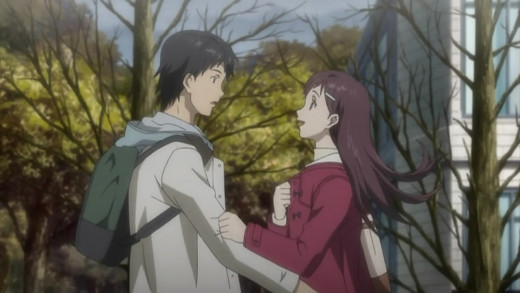
The show has an nontraditional way of presenting its story. The characters go about their conversations very quickly without giving inattentive viewers a lot of leeway. The way this is done is that characters don't explain in bold-set letters what they are going to do or why they did something, and instead briefly spell out these details that by emphasizing to the same level as everything else. Some may be overly confused or uninspired by this method of dialogue, but I found it to be very interesting. This is not unlike how real people talk within conversations, and this also forces the viewer to be highly involved in the show if they want to understand what is going on. I found this method fascinating partially because of how engaging it is, and partially because I generally enjoy intricacy.
Further adding to the exasperation of some viewers, there's text that appears to the side of scenes from time to time. This text details the thoughts of Touya, and is sometimes helpful in strengthening his character, but some of these snippets are so vague that it's difficult to contemplate what they are supposed to inform us of. Furthermore, since this text is usually to the side and rather small, it will sometimes escape notice from some viewers. I believe that the Monogatari series does a better job of doing a similar thing, as the on-screen text in that series always interrupts the animations in which they take place, making it considerably easier to see.
All of these elements add up to the show's first half being a stunning performance, but this high amount of quality soon diminishes after the beginning of its second half.
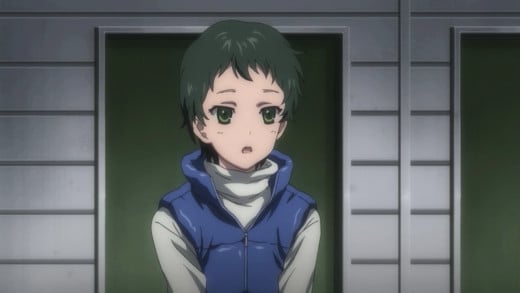
This brings me to my belief in that White Album is an astounding example of how to ruin a well-written premise.
To start, the progression of Touya's characters doesn't make any sense. He starts out feeling empty due to the absence of Yuki, but his reluctance in being close to any woman but Yuki quickly shatters. After this, he begins to seek the attention of other women in order to fill the void in his heart, (technically his brain though) since he can no longer bear his destitute state of being. This development in particular isn't poor, but his actions soon lack any trace of human essence. The show begins to lazily force him into performing certain actions, so as to fill out all the major routes of the visual novel. His personality becomes entirely lost in the disarray of this, to the point that he becomes nowhere near the relatable character he once was. The amount of contrivance that he adheres to make him into one of the most robotic protagonists that I've seen in recent years. Being an antihero is one thing, but many antiheroes, especially Alex from A Clockwork Orange, still remain likable despite their antagonistic behavior. Having a downright atrocious protagonist is one of worst offenses that can be made in a narrative, as investing in a story that centers around an unlikable hero can cause it to become an agonizing venture.
Touya's illogical actions force White Album to abandon most forms of canon is some of the final episodes. Being non-canonical over many installments is excusable, but doing it over the course of the same title is by no means a good idea. This brings us to back to the show's nature as a visual novel. I feel as if Seven Arcs could have gained something by not adapting every single major arc of the novel, (or by having more episodes) since having a coherent and fulfilling adaptation is much better than inefficiently adapting all of it and making it a damned mess.
The show could have also augmented itself by either removing some characters, or by placing more focus on the central conflict between Yuki and Touya. It seemed like it was trying to say too many things for the time allotted. I'm sure all of the characters had satisfying conclusions in the visual novel, but transferring the main contents of an entire visual novel will take at least 50 episodes, and a lot will have to be left out even then. What's given in the 26-episode White Album anime doesn't come anywhere close to what its source material provided (note: I have not read the visual novel).
The final few episodes of the series can be described as a slog at best. I was practically teeming with boredom and frustration by the time I reached the last episode. What I was given once I finally reached the conclusion made up in no way for the amount of torment I had to go through to reach it. To put it more specifically, the ending went along with how convoluted and nonsensical everything else was, all the while it was pretending as if everything had made sense from the get-go. I have no idea what the ending was supposed to imply either, since it ended anticlimactically, and was probably ripping dialogue straight from the visual novel without any regard for the foundations that were necessary for a memorable ending.
Animation & Sound
The animation achieves only what it needs to. There aren't many scenes of high intensity or where things are moving quickly, so the animation quality is good enough for the situations that it is portraying. An unusually blurry art style is used in a few parts, most likely to lead the viewer into experiencing certain emotions. This shift in style is both potent and used sparingly so as to keep it from losing its effect, but some viewers may see it as as an excuse to lower the budget. Still, the removal of these short changes in style would have probably lessened my opinion of the show.
The soundtrack isn't that extravagant either, yet still manages to do its job. A few of the tracks set the mood well and all, but they aren't anything that would immediately pique my interest the moment I heard them. I found the openings to be so boring that I skipped them for pretty much every episode, as their tunes and visuals aren't much to revel in.
White Album's extremely boring second opening
Conclusion
White Album is one of the most glossed over anime of all time due to its similarities to School Days. I can see why someone might be quick to judge it because of this, but School Days doesn't even hold a candle to this series. This is due mainly to its complex characters, marvelous character interactions, effective narrative presentation methods, and heavily grounded themes. Unfortunately, the show hits a decline in quality at about halfway through. This is mainly due to its lack of apparent canon, tendency to try to say too many things too quickly, and poorly orchestrated ending. Also, the protagonist's actions are highly illogical, making him an unbearable undertaking for many. White Album was an entertaining endeavor for myself at times, and I don't think that this title should be overlooked, even though I get lots of bad memories from just thinking about it. My partial approval for it still doesn't change the fact of it being more ineffective than endearing, as it should be more readily looked at from a perspective of "what not to do," instead of the opposite.

